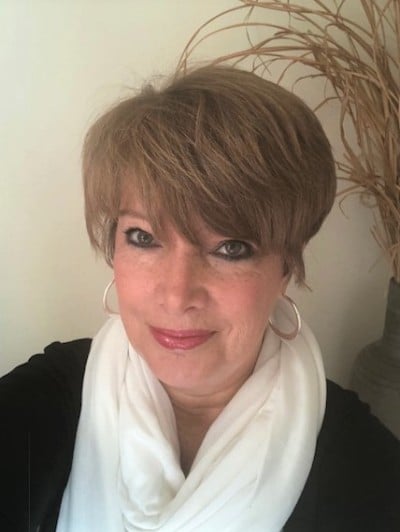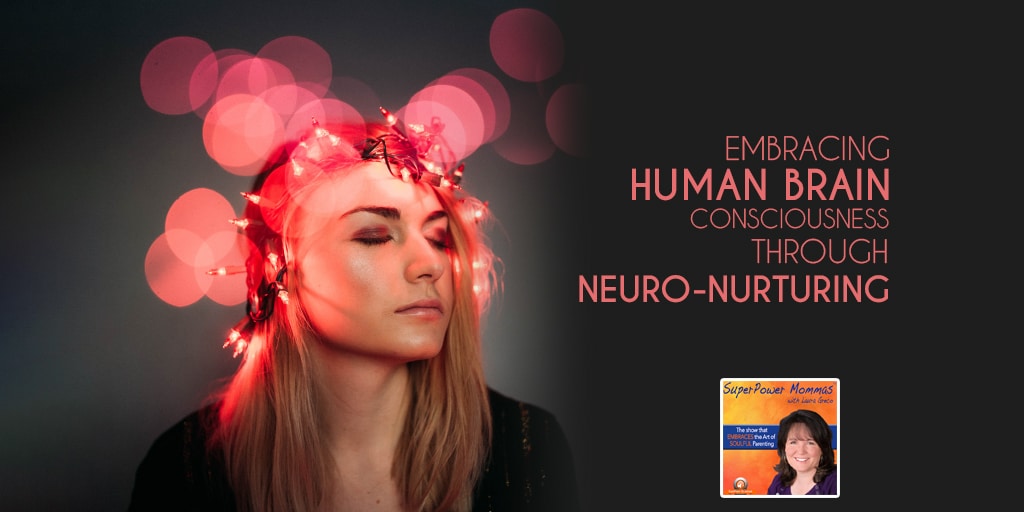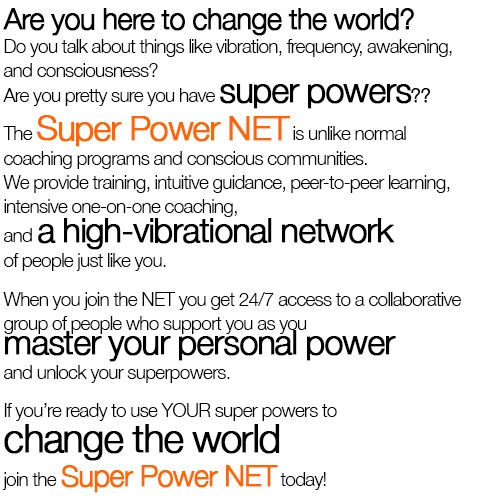
Hello and welcome. You’re listening to SuperPower Mommas and I’m Laura Greco, your host. I’m so excited that you are here today. This is the show where mommas are recalling their superpowers and changing the world from the foundation of families. Welcome.
I would like to introduce you to someone I have known for a few years now and I’ve followed her work and I just love what she’s doing. Her name is Deborah McNelis and she is an entrepreneurial author, international speaker, and educator, and passionate creator of Neuro-Nurturing, which actually brings me to the title of this show, which is Embracing Human Brain Consciousness Through Neuro-Nurturing.
As an early brain development specialist she founded the Brain Insights LLC. Deborah has developed many products that are centered around that. We’re gonna talk about some of that during our show, but for now I’d just like to also share with you that we have actually participated together in another project. I just love her enthusiasm. She’s just such a wonderful person sharing such wonderful things. Welcome, Debbie. I’m so glad you’re here.
Thank you so much. It’s such a pleasure to be invited back and have this opportunity to share what I’m so passionate about and have this discussion with you.
Thank you. Thank you, Deborah. I’m gonna start off, of course, with our usual question which is, what is your superpowers?
What I feel is my personal superpower is having the understanding of how brains develop, how brains function, and how we can easily understand how we can have a positive influence on the way a brain develops or functions.

We need to use our heart, our soul, and nurture who each individual is to allow that to shine.
Wow. That sounds really big. In that understanding of the brain and how it functions with the title of our show is Embracing Human Brain Consciousness Through Neuro-Nurturing, which is actually a phrase you coined, right, Neuro-Nurturing?
Yes, yes. It’s a trademark term that I came up with to convey that we just simply need to nurture brains. We need to use our heart, our soul, and nurture who each individual is to allow that to shine. And if we understand how brains develop we can influence it in the most positive way, so that the brain doesn’t get wired in a way that is gonna prevent us from being all that we are as beautiful unique individuals who can shine and share that uniqueness.
What I see here that you are striving to accomplish is a actual integration of the brain and the heart bringing a consciousness back into our lifestyle.
Exactly, exactly. An aspect of a reason why I developed the term neuro-nurturing is because for two reasons. One is sometimes if you hear the term brain development it might be off putting where you might think oh, that sounds so scientific and too much neuroscience to get into, or what’s happened I find is that frequently when people do realize that the early years are so impactful in the way a brain develops, the thinking has become. The term brain development has become synonymous for many that oh, if those early years are so important we must impact those brains in a way that we’re really focusing on building intelligence and putting as much knowledge into those kids’ brains as early as possible. And so, academics has been emphasized so strongly at younger, and younger, and younger ages. This is not what the optimal way to develop a brain for thriving in light.
Interesting.
Yeah.
Deborah, this is very interesting. One of the things I thought with my clients is that there is a lot, a lot, a lot of information out there. What I discovered through speaking with them is that they are actually, they’ve become not enough in some fashion because they’re scurrying to achieve these, what is supposed to be the best thing for my child. One of the things I share with them what children might need most is to be seen, to be heard, and to be truly valued, and love. I would like you to expand on your work and how that really helps to integrate that for the moms as well, and dads, as well as the children.
Wow. I agree with everything you just said. Yes, parents are bombarded with so much information, and sometimes it can be conflicting information. Well how confusing is that?
Exactly.
There’s so many shoulds. You should do this, and you should do that, and you should do this. It’s overwhelming sometimes. And so, in addressing a part of what you were bringing up is that we need to stop and take the information that we’re getting, and then go to our heart, go to what feels right to us, so that you’re picking and choosing and not comparing and not feeling this should feeling. Just go to what does feel good for you, for your child, or your children. It might be different for each child besides. This child might need this type of nurturing, and this child might need this type of nurturing. It could be very different because we’re all, everyone of us, is unique, and so supporting it in that way.
And then the other piece of what you were bringing up is that yes, as I said, sometimes it sounds complicated to think about brain development. But the points that you were bringing out are exactly what a child needs, to be listened to, to be understood, to be recognized, to be loved. One of the points that I share, usually at the beginning of every presentation I do, I say, “It isn’t complicated.” That’s my niche. It’s part of my superpower is that I share this understanding in very simple, basic, practical ways. And so, I explain that to develop a brain in the most healthy and optimal ways what we need to do is provide the physical and the safety needs that a child has, and to provide loving interaction, and play. That isn’t so complicated, is it?
No, no. And when you think about and in both what you just said and what I shared earlier, a child needs these things, and yet the mother who is providing that for their child needs it, so that she can really do it with a full bucket, with a fullness from herself.

Choice reduces stress levels in the brain.
Exactly, exactly. One of the presentations that I do is called, Attention, Attention. It’s all about how we focus our attention and the emphasis of it is on how our intentions influences our self perception. And so, this is such exciting understanding is that whatever we focus our attention on is going to wire and change our brain in different ways. It’s going to have chemical reactions, biological changes in our body, and hormone releases depending on how we’re focusing our attention, and repetition of the way that we’re focusing our attention. If we were focusing it on the same way repeatedly it creates strong pathways. We have the wonderful opportunity of this understanding that we can make changes to how we’re feeling, and how our brain wires, and how our body is feeling based on what, the way we’re perceiving, and the way we’re focusing on our attention. Isn’t that exciting to realize.
One of the big things I focus on is that we have choice. We have a choice. Choice reduces stress levels in the brain. And so, whenever we’re having either a real or perceived lack of choice it creates stress, but we always have choice. We can build that choice in. We can choose how we’re gonna react to something. We can choose how we think about ourselves. And so, in this presentation that I mentioned I talk about what we do to ourselves all the time? At the end of the day, and especially moms, at the end of the day we think about oh, I didn’t get that done. Oh, I should’ve taken care of that. Oh, I sure didn’t handle that well. Don’t we? We do that to ourselves.
We do. We do. I love everything that you’re sharing so far. It’s so on target with what I teach as well. But what’s most beautiful is the science behind it and it’s there.
Exactly.
That’s something that did not exist when I was raising my children. I knew some of these things. I certainly didn’t know all of them, but I was on that path of discovering. But there was no science to back it up though.
Exactly, exactly. When I started with a bachelor’s degree in early childhood education, and when I was going through that program everything was based on theory or behavioral studies. The technology wasn’t advanced enough to know all that we know now. When the research came out, early brain development, I got so excited because yeah, as you said, it’s science. It’s such a relief and builds confidence for us to know ah, science shows this what children actually need, or this is what is going to make me feel better as a mom because I’m understanding that this is science. It’s just not someone’s belief, or theory.
Very, very nice share. Thank you so much, Deborah. We have to go for a break. I actually went a little overtime here. Please share where people can find you.
My website is braininsightsonline.com.
So simple. Thank you very much. You are listening to Embracing Human Brain Consciousness Through Neuro-Nurturing. This is Laura Greco at SuperPower Mommas. Hold on. We’ll be right back.
To listen to the entire show click on the player above or go to the SuperPower Up! podcast on iTunes.
Podcast: Play in new window


